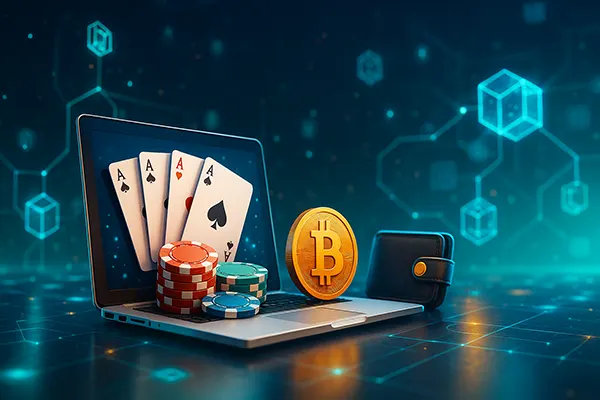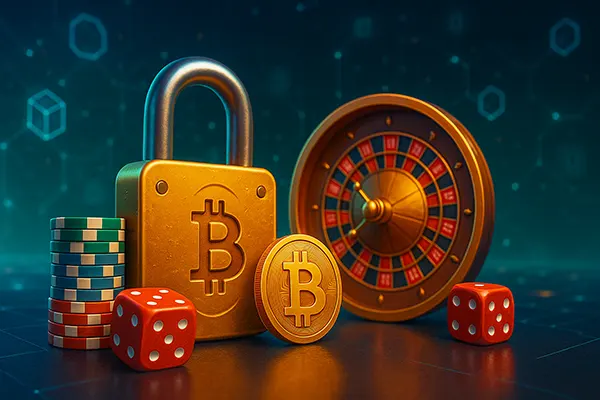
Future Online Casinos: How the Industry Is Changing Under the Influence of Web 3.0
As the world of technology continues to evolve, the online gambling industry is not left behind. The advent of Web 3.0 is reshaping how online casinos operate, offering more transparent, decentralized, and user-centric gaming environments. In this article, we will explore the transformative impact of Web 3.0 on online casinos, examining how blockchain technology, decentralized finance (DeFi), and non-fungible tokens (NFTs) are becoming integral to the next generation of digital gambling.
Blockchain Technology: The Foundation of Future Online Casinos
Blockchain technology has already started revolutionizing the online casino landscape. By leveraging decentralized ledgers, casinos can offer unparalleled transparency and security. Each transaction is recorded on a blockchain, making it virtually impossible to alter or manipulate data. This ensures fair play and builds trust among players.
One significant advantage of blockchain-based casinos is the provably fair gaming system. Unlike traditional online casinos, where the house edge and game outcomes are often questioned, blockchain ensures that every spin or card dealt is independently verifiable. This technological transparency attracts players seeking more reliable gambling experiences.
Furthermore, blockchain technology facilitates faster and more cost-effective transactions. Unlike conventional payment methods, blockchain transactions do not require intermediaries, reducing fees and processing times. As a result, players can deposit and withdraw funds with minimal delays.
Smart Contracts: Automating Casino Operations
Smart contracts are self-executing agreements that run on blockchain networks. In online casinos, they manage game rules, payouts, and transactions without human intervention. This automation not only reduces operational costs but also eliminates errors and fraud.
By implementing smart contracts, casinos ensure that payouts are executed automatically when winning conditions are met. This guarantees that players receive their earnings instantly, fostering a more enjoyable and reliable gaming experience.
Moreover, smart contracts support decentralized applications (dApps), enabling casinos to offer diverse, innovative games. These dApps are hosted on blockchain networks, eliminating the risk of server downtime or data breaches.
Decentralized Finance (DeFi) and Casino Payments
DeFi protocols are redefining how payments and financial transactions occur within online casinos. Through DeFi, players can access borderless and decentralized banking solutions, bypassing traditional financial institutions. This means lower fees and faster transactions, regardless of geographical location.
One of the most promising applications of DeFi in online casinos is staking and yield farming. Players can stake their cryptocurrencies in casino liquidity pools, earning passive income through interest and rewards. This adds an extra layer of engagement, transforming gambling into a dual opportunity for entertainment and financial gain.
Additionally, DeFi wallets allow players to remain anonymous while making transactions. This privacy-centric approach aligns with the principles of Web 3.0, where users retain control over their financial data.
Cryptocurrencies: The Backbone of DeFi Casinos
As cryptocurrencies become mainstream, more online casinos are adopting them as primary payment methods. Bitcoin, Ethereum, and other digital assets enable instant deposits and withdrawals without the need for conventional banking channels.
By accepting crypto, casinos can cater to a global audience, eliminating currency conversion issues. Furthermore, the decentralized nature of cryptocurrencies protects users from inflation and governmental control, offering more stable financial interactions.
Future casinos are expected to integrate even more cryptocurrencies, creating flexible ecosystems where players can choose from a wide range of digital currencies.

Non-Fungible Tokens (NFTs) in Online Gambling
NFTs are making waves in the online gambling industry by introducing collectible and tradable digital assets. Players can purchase NFT-based game items, casino chips, or exclusive avatars that enhance their gaming experience.
Some online casinos are also leveraging NFTs for loyalty programs. By owning a casino-issued NFT, players may receive exclusive bonuses, VIP access, or profit shares from the platform’s revenue.
Moreover, NFTs provide unique opportunities for player engagement. For instance, owning an NFT may grant access to specialized tournaments or rare game modes, adding a new layer of excitement to traditional gambling.
Tokenizing Casino Assets
Tokenization allows casinos to create unique digital representations of their assets. This can include anything from virtual slot machines to entire game collections. Players can invest in these tokenized assets, gaining a stake in the casino’s success.
By trading and holding NFTs linked to casino operations, users become more than just players—they become stakeholders. This fosters a sense of community and encourages long-term engagement with the platform.
Additionally, tokenized assets can be sold or transferred on secondary markets, allowing players to liquidate their holdings when desired.
